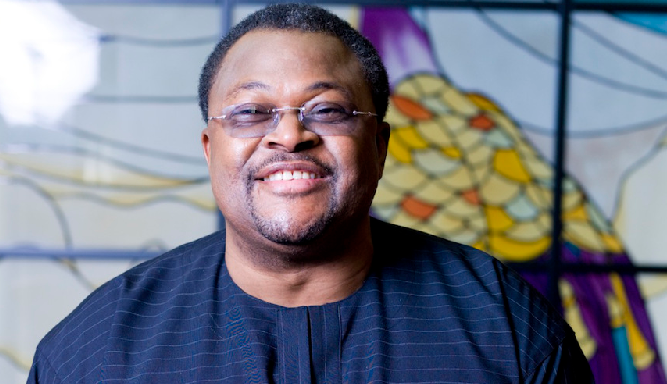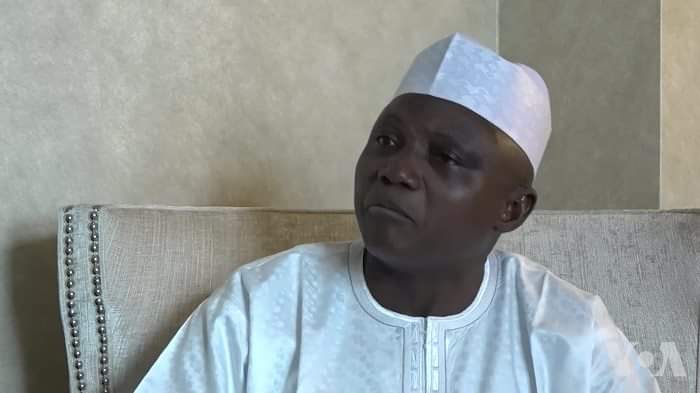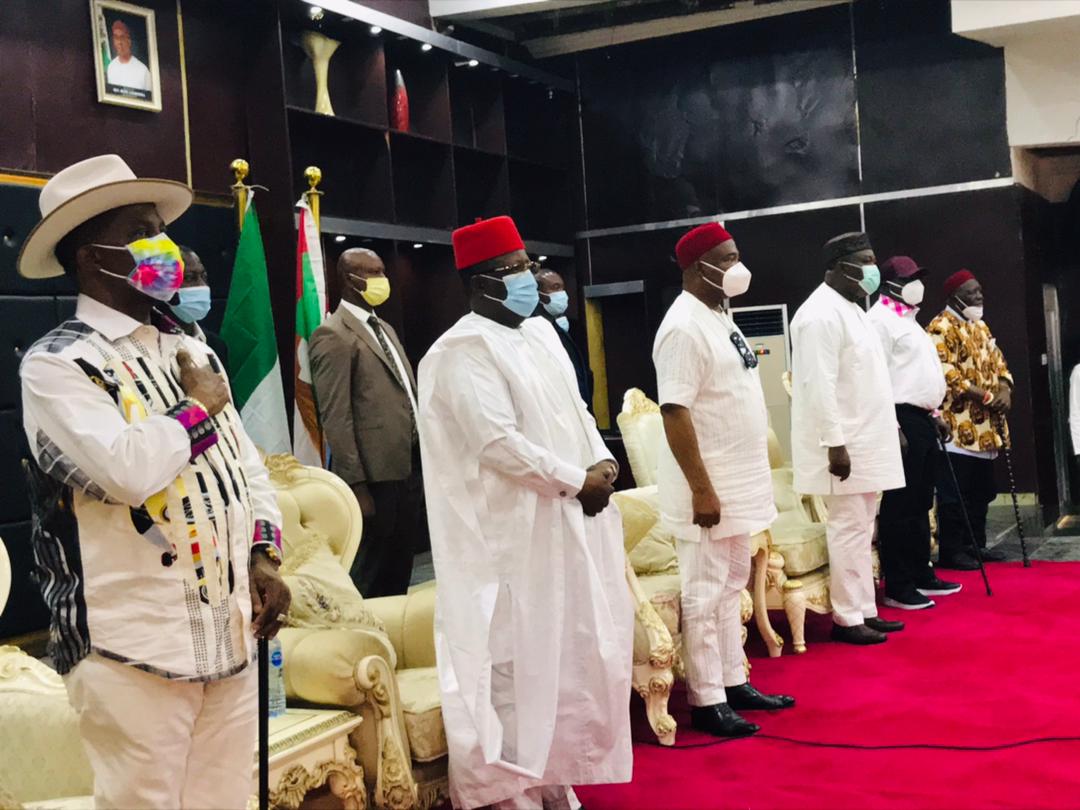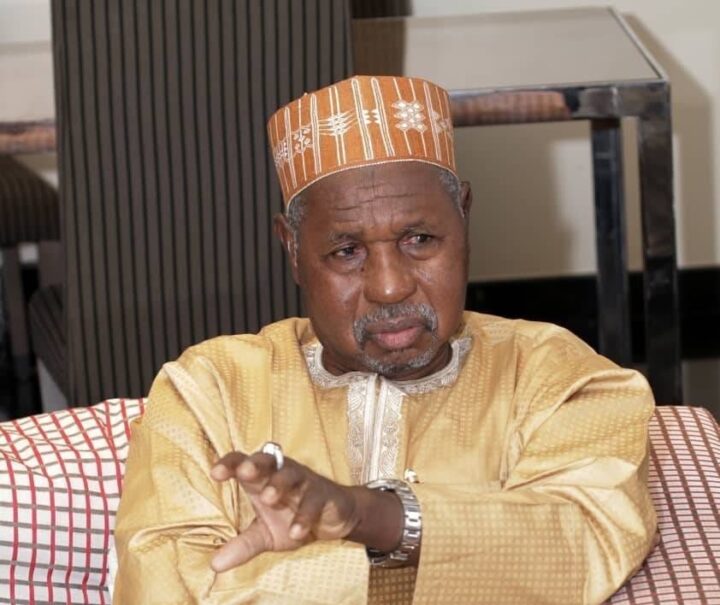The principle of self-determination as enshrined in the UN charter and which our secessionists latch on to was enacted at a time when many peoples of the world were under colonial yoke or other forms of domination by outside powers. The principle was to give fillip to independence and liberation movements in order for them to gain their freedom and determine their path of future development. In our world today this principle applies only to a handful of peoples as an overwhelming majority of peoples of the world are now free from colonial subjugation and self-governing.
Thus the principle of self-determination which was enacted under the UN charter will have to be amended in order to accommodate the demands of our secessionists because going by its intendment and wordings they hardly qualify. First of all they have to prove constructively and convincingly that the areas they purport to represent are under some form of subjugation and that they lack the basic freedoms that all peoples should enjoy as required under the UN charter.
And in the unlikely case of proving that, they will also have to convince the UN of the steps they have taken from the national (National Assembly), sub-regional (ECOWAS) and continental level (AU)to press their case. And the UN will not just take their word for it. There will be fact finding committees to determine whether indeed Nigeria as a country practises the basic requirements of democracy or not.
The case is even made trickier by the fact that those areas are neither disputed territories nor under any trusteeship requiring a UN referendum to either confer direct independence to them or ask them which of the competing powers the wished to join. If our secessionists cannot provide these basic requirements, the farthest their case could get within the UN system will predictably be the waste paper basket because the UN is not for frivolities. It does not lend its very elaborate and transparent processes to be abused by movements who hardly know what they are about.
Advertisement
The case of marginalisation which is also cited as one of the reasons for secession is too trivial to even waste our time. Every democratic system provides for winners and losers in elections. And as imperfect as our political system is, the constitution compels mandatory representation in government and its institutions for as many ethnic nationalities and geo-political zones as possible. The secessionist would have a tough time convincing the outside world that their case for marginalization is more compelling than those of the over 300 other ethnic nationalities inhabiting Nigeria. In other words why would the International community to which the secessionists address their ‘’grievances’’ and from which they seek support for their cause single out just two out of the hundreds of such cases ringing in the Nigerian media for action? What makes their cases so special and urgent above those of others in Nigeria who have conversely chosen not to follow the path of secession?
On all the three premises that our secessionists base their agitations, none is convincing or compelling enough to justify their actions.
On the amalgamation argument Nigeria is not a unique case in Africa or indeed the world. If Nigeria has to be broken up because it was wrongly amalgamated by Britain, then this applies to virtually all but a few countries in Africa. In essence if this principle were to be applied it will set the course for the commencement of a new scramble for Africa by the old and emerging powers of the world in which Africans as before will be the victims. Let us not deceive ourselves for the disintegration of Nigeria if it happens (God forbid) will result in the emergence of entities too weak such that they will find themselves at the mercy of foreign powers.
Some arguments have been made of a break up of Nigeria along the lines of Eastern European states and in the Balkans. In this regard, it will serve us well to discern that what works for Europe may not necessarily work for Africa. In the case of the aforementioned countries, it was part of great geo-strategic games of the major world powers who had direct cultural, economic and political links and interests in the emerging scenarios. And these countries had defined borders before they agreed to come together for mutual defence in the uncertain situation of the Second World War. Once the Soviet order which held them together began to unravel, the need arose for the peripheral countries to revert to the status quo ante. And more importantly, these developments had the backing and guarantees of the principal powers in Europe and the world in the quest for a balance of power. Do Nigerian secessionists have such reckoning and profile in the calculations of the principal powers of the world to warrant their time? The answer obviously is zilch.
Advertisement
This is however not dismissing that the agitations for secession in the country do not have some justifiable basis. Anybody living in this country with the rising case of insecurity, poverty, corruption, nepotism, economic uncertainties amidst the unbelievable incompetence and near criminal indifference of the government to these challenges will conclude that indeed we have a state that is failing in its basic constitutional duties and responsibilities. And in a fragile country like ours with gaping fault lines tendencies or preferences for dissolution of the union are bound to emerge and grow exponentially along with the clear dysfunctionality of the government of the day. And these feelings are all round.
But daunting as the outlook is and tempting as the prospect appears, secession cannot be the solution to our existential challenges as a nation. Indeed it is a prospect fraught with lurking uncertain dangers not least for its proponents but for the country as a whole.
Nigeria is not imperfect. Even some of the advanced countries have shown that despite years of existence and well defined systems, they are not immune from crises arising from internal contradictions.
We should not delude ourselves that in trying to break up our country, some countries will benevolently assist us. What they will do is provide us with the means to destroy and weaken ourselves in the process and then proceed to profit from that at our own expense. That is the reality of the International system.
As the distinguished German beamter at the beginning of my article said and advised; we are at once our own problems and our own solutions. We must put our thoughts, talents and efforts collectively to developing Nigeria rather than breaking it up.
Advertisement
(Concluded)
Views expressed by contributors are strictly personal and not of TheCable.
Add a comment






